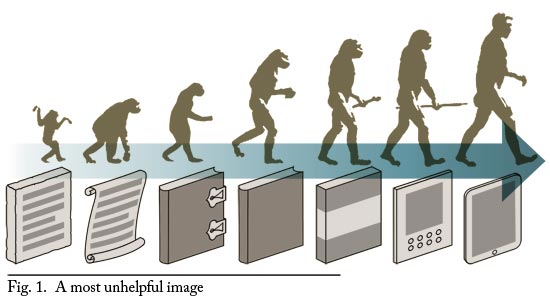I ran across a fascinating article by Andy Matuschak about how hard it is to learn much of anything from a non-fiction book. The basic premise is that the cognitive model of the non-fiction book is busted. People don’t learn well by simply reading words. They have to actively engage in metacognition to retain information and they are not likely to do this if they are not academically trained in the specific area covered by the text.
Matuschak rightly notes that the K-12 education community has known this for many years and has been evolving and reshaping how classroom instruction works in order to move away from the ‘transmissionism’ or ‘sage on the stage’ model to a project-based, interactive, collaborative learning model.
At this point, the article has some interesting things to say about educational technology. It reminds me of this great piece about a teacher who went to work for AltSchool and became disillusioned. Matuschak notes that class discussion, social learning, personal relationships with disciplinary experts, and the ’emotional salience’ of having a teacher who is palpably fascinated by the course content are things that cannot be replaced by ‘AI based learning systems’.
Of course this is not the main idea of the article but I like his use of the ongoing evolution of classroom learning as an example of how books could also evolve. Really, this article is about how we design experiences–books or classroom teaching–that close the gap between presentation of information and understanding of the information. It’s a good way of framing the work that I see teachers doing every day.




